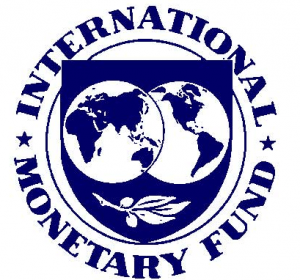IMF approves Ghana’s third tranche $360m loan
 The Executive Board of the International Monetary Fund (IMF) on Friday approved Ghana’s $360 million third tranche for the implementation of the country’s Post COVID-19 Programme for Economic Growth (PC-PEG).
The Executive Board of the International Monetary Fund (IMF) on Friday approved Ghana’s $360 million third tranche for the implementation of the country’s Post COVID-19 Programme for Economic Growth (PC-PEG).
This comes following a successful completion of the second review of the $3 billion three-month Extended Credit Facility (ECF) arrangement, having recently concluded debt restructuring with external creditors.
“Completion of the second ECF review allows for an immediate disbursement of SDR 269.1 million (about $360 million), bringing Ghana’s total disbursements under the arrangement to about $1.6 billion,” the Fund said in a statement on Friday, June 28, 2024.
It noted that all quantitative performance criteria for the second review, and almost all indicative targets were met, with good progress made on the key structural reform milestones, despite some delays.
“Looking ahead, sustaining macroeconomic policy adjustment and reforms is essential for fully and durable macroeconomic stability and debt sustainability – especially during the upcoming electoral period,” the Fund said.
Kenji Okamura, Deputy Managing Director, IMF, said, “Resolve in keeping the domestic revenue mobilisation agenda on track and tightening expenditure commitment controls is critical to avoid policy slippages ahead of the December 2024 general election.”
He also urged the government to continue to improve tax administration, strengthen expenditure control, and management of arrears, enhance fiscal rules and institutions, and improve State-Owned Enterprises (SOEs) management.
“Greater focus on reforms aimed at private sector development is needed to foster inclusive growth and poverty reduction,” the IMF Deputy Managing Director, said.
Welcoming the development, businesses, manufacturers and traders alike, have urged the government to prioritise stability of the economy, and ensure that it reduced the appetite for accumulating debt that it could not repay.
That should include further reducing inflation and stabilising the depreciation of the Cedi through targeted policies, and making the business environment friendlier, including making taxes affordable and easy to pay.
Mr Seth Twum-Akwaboah, Chief Executive Officer, Association of Ghana Industries, said the completion of the country’s debt and the approval of the third tranche $360 million would boost confidence in the economy.
He said this in an interview with the Ghana News Agency, noting that was important for the government to make policies solidify economic gains and enable businesses have respite to grow and expand.
“Restructuring does not mean the debt is cleared; the government must continue to work towards making it easy for the productive sectors of the economy to thrive to generate the resources and pay appropriate taxes,” he said.
“By so doing the expected revenue would be realised to pay debt when it’s due,” Mr Akwaboah said, urging the government to manage governance system to lessen the debt burden on Ghanaians.
He noted that the Cedi depreciation, a major challenge of businesses was fuelled by speculation, leading to uncertainty in the system and the tendency for people to buy the dollar and hoard them even when they did not need it.
“So, anything that brings confidence into the system is very important, and the government announcing an end to the debt restructuring and the third tranche would help bring confidence to the people and market,” he said.
“Most of our businesses have this year suffered a loss of about 23 per cent, mainly due to the depreciation of the Cedi, which does not augur well,” said, Dr Joseph Obeng, President, Ghana Union of Traders Association (GUTA).
He urged the government to come up with interventions that would inspire hope into the system, and reduce people’s habit of buying the dollar as a store of value because to speculation.
He expressed confidence about the third tranche $360 million helping to stabilise the economy, and making businesses grow.
Source: GNA
